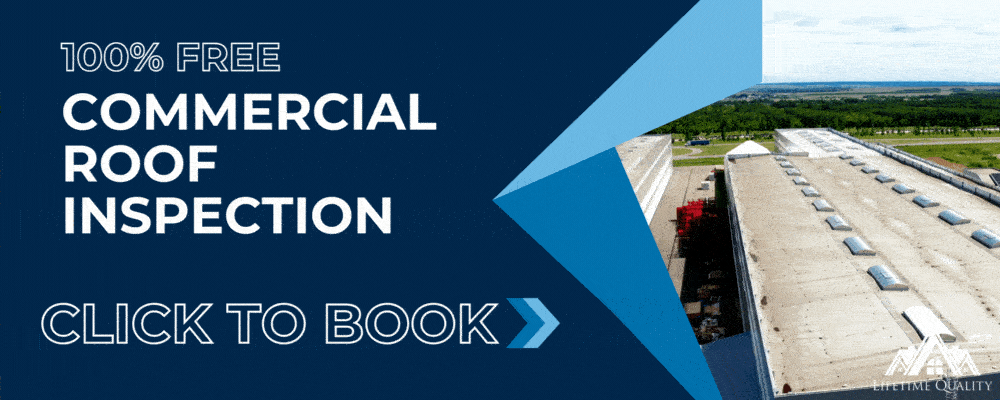
Differences Between Residential and Commercial Roofing
Are you confused about the differences between residential and commercial roofing? Learn more about the benefits and considerations of each …

If you're a homeowner in Texas, you know that your roof is subjected to harsh weather conditions year-round. From scorching heat to severe storms, your roof takes a beating. So, how long does a Texas roof last? And why should you choose lifetime quality to replace it? In this article, we'll explore the answers to these questions and more.
A roof is one of the most important components of any home. It protects you and your belongings from the elements, providing shelter and security. However, many homeowners neglect the maintenance of their roofs until a problem arises. Regular maintenance is crucial to ensure the longevity of your roof.
Proper maintenance includes regular inspections, cleaning, and addressing any minor issues promptly. By doing so, you can prevent small problems from escalating into major ones that require costly repairs or even a complete roof replacement. Additionally, maintaining a quality roof enhances the overall value and curb appeal of your home.
When it comes to the lifespan of a Texas roof, various factors come into play. The type of material used, the installation quality, and regular maintenance all impact its longevity. Let's delve into each of these factors to provide you with a comprehensive understanding of their importance.
1. Type of Material
The type of roofing material you choose significantly influences how long your roof will last. Texas homeowners have several options to consider, including asphalt shingles, metal roofs, clay tiles, and concrete tiles. Each material has its own pros and cons, and understanding these differences is key to making an informed decision.
2. Installation Quality
Even the best roofing materials won't last if they're not installed properly. Hiring a reputable roofing contractor who specializes in the specific material you choose is crucial. A professional installer will ensure that every step of the installation process is done correctly, from preparing the roof surface to applying the final layer of shingles or tiles.
3. Regular Maintenance
Regular maintenance plays a vital role in extending the lifespan of your roof. Inspecting your roof for damage, cleaning gutters, removing debris, and addressing any issues promptly are all part of proper maintenance. Neglecting these tasks can lead to water damage, leaks, and structural problems that shorten the lifespan of your roof.
Now that we understand the factors that affect the lifespan of a roof, let's explore the average lifespans of different types of roofs in Texas. Keep in mind that these are general estimates, and individual circumstances may vary.
1. Asphalt Shingles
Asphalt shingles are the most common roofing material in Texas. They are affordable, versatile, and relatively easy to install. On average, asphalt shingles can last between 15 to 30 years, depending on factors such as climate, maintenance, and quality.
2. Metal Roofs
Metal roofs are gaining popularity in Texas due to their durability and energy efficiency. They can last anywhere from 40 to 70 years, depending on the type of metal used and the quality of installation. Metal roofs are highly resistant to weather damage, making them an excellent choice for Texas homeowners.
3. Clay and Concrete Tiles
Clay and concrete tiles are known for their aesthetic appeal and durability. With proper maintenance, these roofs can last between 50 to 100 years. However, it's important to note that these roofs are heavier and may require additional structural support.
4. Other Materials
Other roofing materials, such as wood shingles, slate, and synthetic materials, have varying lifespans. Wood shingles can last around 20 to 25 years, while slate roofs can last over a century. Synthetic materials, such as synthetic slate or rubber, offer a cost-effective alternative with a lifespan of 30 to 50 years.
Knowing when to replace your roof is essential to avoid costly repairs and potential damage to your home. Here are some signs that indicate it's time to consider a roof replacement:
1. Age of the Roof
Roofs have a limited lifespan, and if your roof is nearing the end of its expected lifespan, it's wise to start planning for a replacement. Even if there are no visible signs of damage, an aging roof may become more prone to leaks and other issues.
2. Visible Damage
Visible damage, such as missing or cracked shingles, granule loss, or sagging areas, is a clear indication that your roof needs attention. These issues can compromise the integrity of your roof and lead to leaks and water damage.
3. Water Leaks
If you notice water stains on your ceiling or walls, it's a sign of a leak somewhere in your roof. Leaks can cause significant damage to your home's structure and should be addressed promptly.
4. Increased Energy Bills
A poorly insulated or damaged roof can result in higher energy bills. If you notice a sudden increase in your energy costs, it could be a sign that your roof is no longer providing adequate insulation.

When it comes to replacing your roof, investing in a Lifetime Quality roof is a decision that brings numerous benefits. Let's explore some of the advantages of choosing a Lifetime Quality roof over other options.
1. Superior Durability
Lifetime quality roofs are built to withstand the test of time. These roofs are made with high-quality materials that are designed to resist damage from weather, UV rays, and other environmental factors. By choosing a lifetime quality roof, you can have peace of mind knowing that your investment will last for decades.
2. Increased Energy Efficiency
Energy efficiency is a top priority for many homeowners. Lifetime quality roofs are often designed with advanced insulation and reflective properties, helping to keep your home cooler in the summer and warmer in the winter. This can result in reduced energy consumption and lower utility bills.
3. Potential Insurance Savings
Some insurance companies offer discounts for homeowners who have a lifetime quality roof installed. By investing in a roof that is less likely to sustain damage or require frequent repairs, you may qualify for lower insurance premiums. Be sure to check with your insurance provider to see if they offer any incentives.
When choosing a lifetime quality roof, it's important to understand the warranty that comes with it. These warranties typically cover the materials and workmanship for a specified period, often ranging from 25 to 50 years. However, it's crucial to carefully read and understand the warranty terms and conditions to ensure you're fully protected.
Warranties may have specific requirements for maintenance, regular inspections, and repairs. Failure to comply with these requirements could void the warranty. Additionally, pay attention to what is and isn't covered by the warranty, as some exclusions may apply.
Now that you understand the benefits of choosing a lifetime quality roof, let's discuss the steps involved in replacing your roof with these materials.
1. Research and Planning
Start by researching different types of Lifetime Quality materials and finding reputable roofing contractors in your area. Look for contractors who specialize in lifetime quality roofs and have positive reviews and testimonials.
2. Consultation and Inspection
Schedule a consultation with a roofing contractor to assess your current roof and discuss your options. They will inspect your roof for any damage, determine the scope of work, and provide you with an estimate.
3. Choosing the Right Materials
Work with your contractor to choose the best lifetime quality materials for your home. Consider factors such as durability, energy efficiency, and aesthetic appeal when making your decision.
4. Removal and Installation
Once you've chosen your materials, the contractor will start the removal process. They will remove the old roof, inspect the underlying structure for any issues, and then install the new lifetime quality roof.
5. Final Inspection and Cleanup
After the installation is complete, a final inspection will be conducted to ensure everything has been done to the highest standards. The contractor will also clean up the work area, removing any debris and ensuring your property is left in pristine condition.
The cost of replacing a roof can vary depending on several factors, including the size of your home, the type of materials used, and the complexity of the installation. It's important to budget for this significant investment and consider the long-term benefits of choosing a lifetime quality roof.
While lifetime quality roofs may have a higher upfront cost compared to other roofing materials, their durability and longevity often make them a cost-effective choice in the long run. Additionally, consider any potential insurance savings and energy efficiency benefits when evaluating the overall cost.
When it comes to home maintenance, your roof is one of the most crucial components of your property. It not only protects you from the elements but also contributes to the overall aesthetics and value of your home. That's why choosing the right Roofing and Exterior Services Company is paramount, and for Texans, Lifetime Quality stands out as the best option. Here's why:
Lifetime Roof Warranty:
Exceptional Customer Satisfaction:
Personalized Approach:
Expertise and Experience:
In conclusion, the lifespan of a Texas roof depends on various factors, including the type of material used, installation quality, and regular maintenance. By choosing a lifetime quality roof, you can enjoy superior durability, increased energy efficiency, and potential insurance savings.
When replacing your roof, it's essential to hire a professional roofing contractor who specializes in lifetime quality roofs. Contact Lifetime Quality today to book your 100% free roof inspection.
While the cost of replacing your roof is an important consideration, investing in a lifetime quality roof provides long-term benefits and peace of mind. Make an informed decision, considering factors such as durability, energy efficiency, and potential insurance savings.
Protect your home and loved ones by choosing a lifetime quality roof that can withstand the harsh Texas weather and provide you with lasting value.